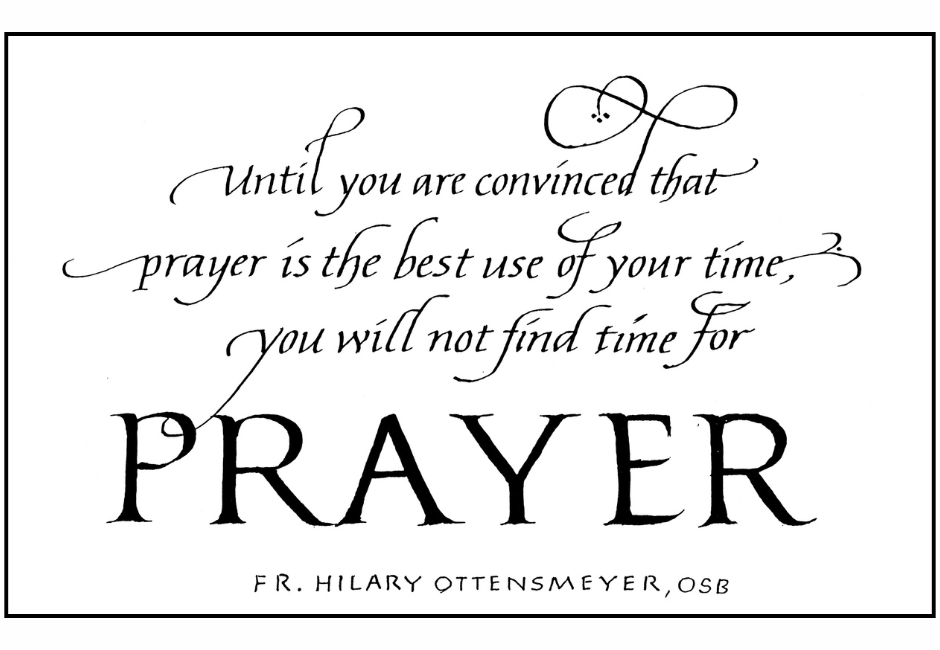
God always gives us the grace to cry out in prayer to him.
Jesus told the disciples a parable about the necessity for them to pray always without becoming weary… (Lk18:1 ff).
Are you getting a bit weary? Many are.
Whether it is in regard to personal struggles and tragedies in our own lives or the lives of people we hold dear, or the endless drumbeat of grimness in the world delivered to our screens and doors daily, or simply the wear and tear of years that comes to us all, spiritual weariness is a reality as common as the physical weariness we all encounter in our normal lives.
The parable in Luke 18: 1-8 addresses this reality head-on, in a way that is very consoling. God knows we get weary and that we can especially get weary of praying for the same things over and over again, year after year.
Yet another round of war and violence in the Middle East. Yet another round of bombs falling in Ukraine. Yet another instance of the age-old story of the rich and powerful profiting at the expense of the poor and helpless. Yet another exposure of political corruption, yet another glaring example of social injustice and exploitation crying out to heaven for redress.
And in our personal lives and the lives of the ones we care for and strive to help, lots and lots of “yet anothers” as well, the blanks of which I will leave you to fill in. Who wouldn’t get weary of lifting all these up to the Lord in prayer and supplication?
It is consoling that the Lord acknowledges this so simply and, nonetheless, gently calls us to persevere in our prayers. It is equally consoling that the parable he tells in this regard is that of the unjust judge and the poor widow who simply would not give up on petitioning him for justice.
This is really an extraordinary parable, as the plain meaning of it is to liken God to a dishonest, corrupt man, “fearing neither God nor human beings.” The process of persevering in prayer is likened to that of wearing down the resistance of such a person by, essentially, being really annoying and even threatening. “This widow keeps bothering me…” and finally, “I’ll give her justice lest she come and strike me.”
If it were not Jesus himself crafting this parable, we would be inclined to call it sacrilegious, blasphemous, heretical. And we do need to read it with careful theological eyes.
God, after all, is not only just but is Justice itself. In the Divine Charity, we are never annoying to him, never a bother. And in the Divine Omnipotence, of course it is absurd to think of our striking him. As the old musical put it, our arms are too short to box with God.
The Lord gives us this beautiful absurd parable because he knows well that in our humanity, the experience of praying to God very often feels exactly like this.
While the theological reality may be (and is) quite other, we can feel like we are talking to a brick wall sometimes in our prayers. We can feel like nobody up there is hearing us, answering us, or even seems to care much about what we are praying. We can feel like God is unjust, indifferent, heedless of our needs.
We can feel all of that, and anyone who says they have never felt that, at least a little, at times — well, I don’t know if that person is being entirely honest with themselves. And the Lord tells us here that it’s OK to feel that way… but keep praying nonetheless.
Our faith tells us that God is good, loving, just, merciful, tender, kind, and everything we want an attentive loving father to be, and then some. Persevering prayer is the expression of that faith in the most basic, fundamental activity imaginable.
This is perhaps the purest expression of utter faith that ordinary, everyday Christians are called to practice constantly. Any of us can have extraordinary moments in our lives when our commitment to being disciples of Christ can ask some tremendous sacrifice or suffering of us, even call us to martyrdom at the greatest extreme. But the ordinary, everyday life of a Christian manifests pure faith nowhere greater than in the call to pray without ceasing and not lose heart.
When I was living in poustinia, and prayer was even more so the main “duty of the moment,” I often had the image of it being rather like pouring out a sand bag into a bottomless hole.
Lord Jesus Christ, son of the living God, have mercy on me a sinner… over and over again for hours on end, and in that prayer, lifting up this person, that person, this situation, that tragedy… on and on, the prayer emanating from my heart, mind, and throat, and vanishing into… well, you tell me.
Disbelief says these prayers vanish into a meaningless void, into nothingness, a pointless futile exercise. Faith says they vanish into the heart of the Trinity and by God’s gracious mercy yield effects impossible to measure. For myself at any rate, the felt experience of the exercise could not distinguish readily between these two options. And yes, for sure, I would grow weary at times.
So this Gospel is a great consolation and a challenging loving call to have faith and to live our faith in a basic, simple way accessible to every last one of us. Everyone can pray, and whatever other struggles we have in our life, God always gives us the grace to cry out in prayer to him.
So, faith. When the Son of Man comes, will he find faith on earth? How will you — how will I — answer that question? Let’s pray for one another, so that we can give him a good answer.
[Calligraphy by Fr. Eric Lies]




